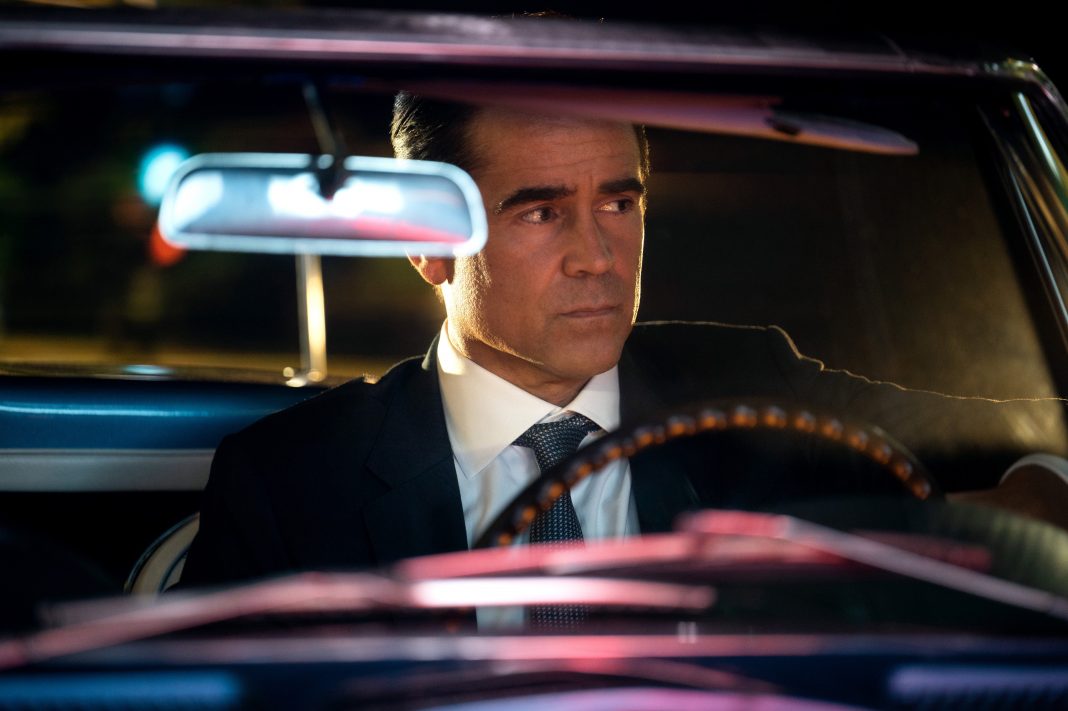Perhaps the biggest hurdle in adapting Film Noir for modern audiences is figuring out how to strike just the right tone.
Although the genre is known for its convoluted plots, morally murky characters, and cynical anti-heroes, it’s also got its share of emotionally bereft hard men (detectives mostly), and fantasy women (femme fatales forged from myriad clacking typewriters in myriad lonely rooms, mostly) who are as comfortable with being slapped as they are with being kissed.
If character defines plot in modern film and TV then the Noir genre has always played fast and loose with that idea. It’s here, in the loops, spirals, twists, and turns of narrative-driven melodrama that a slew of familiar-feeling characters move from point A to point B, to the inevitable shootout at point C. How then to keep that somber fatalism of the 1950’s while presenting both character and story a 21st Century audience can connect with?
AppleTV seems, for the most part, to have figured it out with Sugar, a new 8 part detective series that feels pulled from 1950’s cinema, but with the depth of tone and sensitivity a modern audience can get behind.
The series stars Colin Farrell as John Sugar, a P.I. who prides himself on discretion and his ability to deliver. Sugar takes on missing person cases — often for the rich and famous. His latest case involves the mysterious disappearance of Olivia Siegel, the beloved granddaughter of legendary Hollywood producer Jonathan Siegel (James Cromwell). As Sugar tries to figure out what happened to Olivia, and why so many of her family members don’t seem to particularly care for answers, he begins to unearth Siegel family secrets; some very recent, and others long-buried.
Farrell’s Sugar is full of contradictions. Whether cruising the streets of Los Angeles in his vintage Corvette, or digging up the deets in a local dive bar, or discussing movies like a true Noir aficionado (more on that in a moment), we begin to see a picture of a man who is smart, efficient, and violent when he needs to be, but balks at the idea of carrying a gun. Sugar struggles with a deeper trauma he refuses to examine, but he’s not so damaged that he’s beyond sincere acts of kindness. Sugar has at least one meaningful personal connection in his life — Ruby (kirby), who is Sugar’s handler — and his moments of deep emotional intelligence suggest he could easily have more, but he remains deeply lonely and apart nonetheless. And while so many contradictions may sound like overkill (or just not enough women in the writers’ room), Farrell navigates his way through these Noir-themed idiosyncrasies with ease, softly-spoken charm, and aplomb.
Credit goes to Kirby’s Ruby too, one of the only women in the Noir genre who isn’t a beautiful victim, or a seductive and vengeful femme fatale. While Ruby cares for Sugar’s wellbeing, she’s not beyond telling him to leave when he turns up at her door unannounced. Ruby, it seems, has a whole cadre of John Sugars to orchestrate, and her personality and objectives feel refreshing from the get go.
But ultimately it’s not Farrell, Ruby, or even the streets of Los Angeles that take center stage in Sugar. At the core of the series is creator Mark Protosevich’s obsessional love of the Noir genre. That love is shown on-screen in several ways. The premiere episode opens in Tokyo, and reveals (in Black and White) a kidnapping storyline featuring a case of mistaken identity — a clear homage to Akira Kurosawa’s 1963 crime thriller High and Low.
Later scenes set in Los Angeles are deliberately reminiscent of Curtis Hanson’s 1997 film L.A. Confidential (itself a homage to Noir in the grand tradition), and even Sugar’s plot seems deliberately ripped from the plot of Jack Nicholson-starring 1974 Noir classic Chinatown.
But the obsession doesn’t end there. John Sugar (just like his creator) is a Noir buff, who spends his free time in darkened movie theatres reliving the classics. Sugar would surely approve of Protosevich’s liberal use of clips from classic films such as The Big Heat, Kiss Me Deadly, Dead Reckoning, Sunset Boulevard and more sprinkled amid Sugar’s softly spoken detective monologues and fleeting inner thoughts and feelings. It’s a stylish creative decision that doesn’t always land as seamlessly as it should, but thematically, at least, feels appropriate and earnest.
On balance, Sugar is a stylish and laid-back detective drama with a solid cast, beautiful locations, an occasionally quirky directing style, and a mystery in the time-honored legacy of the genre. Part cliché, part grand tradition, Sugar is every Noir movie you’ve ever seen.
Watch if you are a fan. Watch even if you are not.


